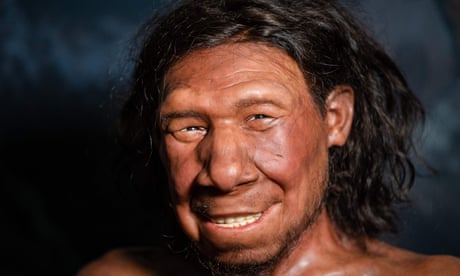- by cnn
- 24 Jul 2024
Revealed: modern humans needed three tries - and 12,000 years - to colonise Europe
Revealed: modern humans needed three tries - and 12,000 years - to colonise Europe
- by theguardian
- 08 May 2023
- in news

It took three separate waves of modern humans to colonise Europe between 54,000 and 42,000 years ago. That is the key conclusion of scientists who have been studying caves in the Rhone valley where they have discovered evidence that Homo sapiens had to make a trio of determined attempts to head westwards and northwards from western Asia before they could establish themselves in the continent.
"The first two of these waves failed but the third succeeded around 42,000 years ago," said Ludovic Slimak of the University of Toulouse, who is leading the excavations in France. "After that, modern humans took over in Europe. The Neanderthals, who had evolved on the continent, died out."
The group's research, published in the journal Plos One, is controversial because it implies that our species settling in Europe took around 12,000 years to complete. Far from being a rapid takeover, modern humans' transition into the continent was a lengthy affair involving travel along the Mediterranean before our ancestors headed northwards up the Rhone valley.
The paper is also contentious because it questions the origins of one of the key prehistoric stone tool industries that have been uncovered in central France. These are known as the Châtelperronian tools, a lithic industry that was named after a village where the implements were first found in the 19th century.
Crucially, these tools, which are distinctive for their elegant, slender blades and sophisticated construction, have since been attributed - by many but not all scientists - to Neanderthal tool-makers. These researchers argue that the tools show that Neanderthals were capable of advanced tool manufacture and complex behaviour.
But Slimak rejects this view. "The Châtelperronian tools are the handiwork of modern humans, and given their similarity to stone tools that were being made in the Middle East, we conclude they were brought there by Homo sapiens as they moved into Europe."
It is a claim that is bound to cause controversy, said Professor Chris Stringer of London's Natural History Museum. "This is a provocative and ambitious paper," he told the Observer. "In particular, it argues that the Châtelperronian stone industry, which is usually assumed to be the product of Neanderthals, was actually the work of Homo sapiens. Supposed associations of Neanderthal fossils with Châtelperronian tools must therefore be invalid, he is saying."
- by travelandtourworld
- descember 09, 2016
Travel Industry Called to Act on Climate Justice in Latest Report
read more



